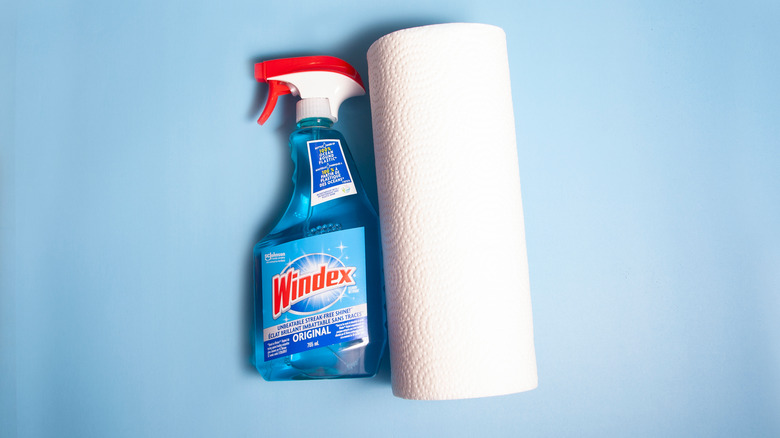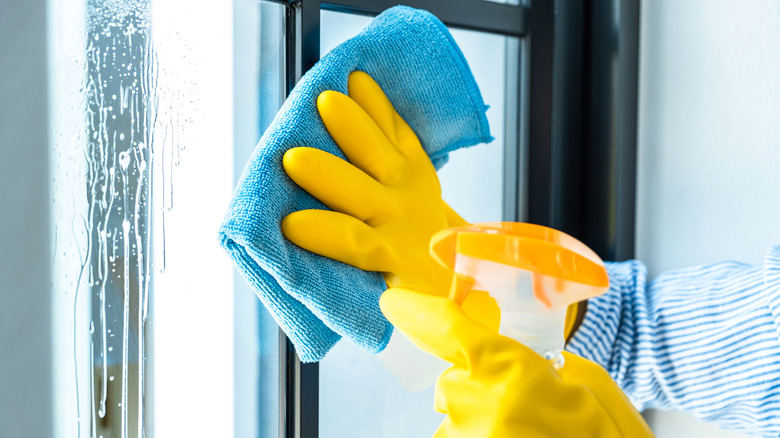Why You Should Think Twice About Cleaning With Windex
If you've seen the 2002 rom-com "My Big Fat Greek Wedding," you'll recall the family patriarch, Kostas "Gus" Portokalos, using Windex as a panacea, claiming the cleaning product works wonders on everything from psoriasis to poison ivy — much to the annoyance of his "big fat" Greek family.
Unfortunately, that's not quite the case. While Windex works great as a cleaner when used the way it's meant to — giving glass and mirrored surfaces a brilliant shine — there are some drawbacks to using it. Windex and even generic versions of it contain a powerful chemical, ammonia, which gives the product its telltale pungent scent. Ammonia is colorless at room temperature, has alkaline properties, and is highly corrosive and irritating, according to the New York State Department of Health.
Because of its ammonia content and the way it's used as a spray, there are several reasons you should think twice about cleaning with Windex. Keep reading to get the scoop.
Ammonia, the key ingredient in Windex, can be hazardous
Although Windex contains a comparatively small amount of ammonia (or ammonium hydroxide), which is listed fourth on its ingredient label, exposure to large amounts of the chemical can be toxic. When inhaled in small amounts, ammonia could cause you to cough and experience nose and throat irritation, according to the New York State Department of Health. In larger amounts, you could burn your nose, throat, and respiratory tract, even leading to the destruction of your airway. Children exposed to the same amount of the chemical will have heightened reactions compared to adults, and pregnant women risk developing asthma if exposed to too much ammonia in aerosol form.
Further, if ammonia makes contact with your skin or eyes, symptoms could range from rapid irritation and severe burns to eye damage and blindness. If ingested in high amounts, ammonia can lead to corrosive damage to the mouth, throat, and stomach.
There are some other cautions you should take when using Windex, too. First, it's not made for all surfaces, such as your computer screen. It may be too corrosive for the delicate material of your screen and could cause damage, per Oprah Daily. Plus, if you're prone to zoning out while cleaning, make sure you don't mix Windex and bleach. The combination yields chloramine, a toxic gas that can cause serious respiratory problems if inhaled.
Again, these potential health risks are mostly a danger if you're exposed to high amounts of Windex. So, if you open a window and use a normal amount, you should be fine. But, the next time you have a monster zit on your wedding day, skip Gus' Greek solution and use a spot treatment instead.

